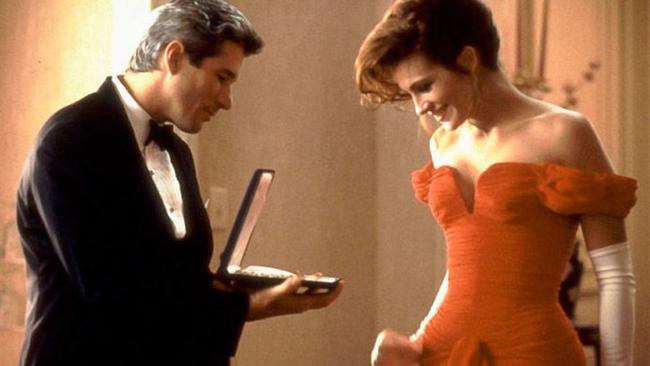Are you dating a ‘vulnerable narcissist’?
The dating pool is full of them

Lifestyle
Don't miss out on the headlines from Lifestyle. Followed categories will be added to My News.
A new study finds a link between one personality type and the most toxic dating app behaviours. Nicole Colantoni, a modern dating and relationship coach, and Isiah McKimmie, a couples therapist and sexologist, offer advice on what to do if you swipe right on a vulnerable narcissist.
After decades of dating apps, we can finally declare that the jig is up on blind optimism. In fact, we now know that the 300 million hopeful romantics swiping right for love on dating apps right now will find more than just love.
Ghosting, misrepresentation, breadcrumbing, and the like are no longer anomalies for swiping singles, but rather stepping stones on the path to finding love.
A startling 81 per cent of users admit to misrepresenting themselves in various ways, ranging from carefully selected profile pictures to creating entire fictitious personas. And a shocking new study reveals which personality type is associated with the most sinister of these profile fabrications.
Like what you see? Sign up to our bodyandsoul.com.au newsletter for more stories like this.
Academics Megan Willis, Eliza Oliver, and Evita March investigated how vulnerable narcissism affects the authenticity of online dating profiles. They polled 316 online daters (55 per cent of whom were female) to assess for "dark triad" personality traits such as grandiose narcissism, psychopathy, and Machiavellianism.
Narcissism is a personality trait spectrum that varies in intensity, with those at the extreme end displaying entitlement, superiority, and an insatiable need for admiration. Vulnerable narcissism, on the other hand, is distinguished by emotional sensitivity and a defensive, insecure grandiosity that conceals feelings of inadequacy.
They compared the participants' authentic selves to their online dating personas and scrutinised their antisocial behaviours like ghosting and breadcrumbing. Individuals with higher levels of vulnerable narcissism exhibited more inauthentic representation and behaviours such as ghosting and breadcrumbing, according to the findings.
Despite the fact that not all ghosters are narcissists, and if they are, boy have they done you a favour, the significant link suggests that the likelihood of encountering vulnerable narcissists on the apps is very high. Although the dating pool is beyond your control, we sought advice from modern dating and relationship coach Nicole Colantoni and Isiah McKimmie, couples therapist and sexologist, to best prepare single swipers for these encounters.

What is a vulnerable narcissist?
According to Nicole Colantoni, a vulnerable narcissist is "someone who exhibits characteristics of both vulnerability and narcissism." The paradox is that despite their grandeur, vulnerable narcissists "have an underlying sense of inferiority and low self-esteem," which they mask with a variety of defence mechanisms and self-enhancement behaviours.
According to Colantoni, they "expect others to recognise and praise their supposed superiority."
In order to validate their self-worth, they seek constant admiration, attention, and reassurance from others. which can include fishing for compliments, exaggerating their accomplishments, or engaging in attention-seeking behaviours.
Their self-esteem, on the other hand, is easily shattered, and even minor criticism or rejection can be devastating. According to Colantoni, they are also "highly reactive to perceived slights or criticism," and when they receive negative feedback, they "may become defensive, withdraw, or become emotionally distressed." It is this which sets them apart from other narcissists.

How do they differ from other narcissists?
Isiah McKimmie says that while all narcissists share common traits, "vulnerable narcissists are particularly insecure and are sensitive to rejection and criticism. They can be highly emotional and are more likely to use social isolation to protect themselves from being rejected or not put on a pedestal."
"They often adopt a victim mentality, seeking sympathy and attention, and display dependent and codependent behaviours in relationships," Colantoni adds, and "To safeguard their self-worth, vulnerable narcissists employ defence mechanisms, such as exaggerating achievements or seeking excessive praise, and resort to passive-aggressive tactics like avoidance or withdrawal when faced with perceived threats."
How can you spot one?
Colantoni recommends keeping an eye out for signs of fragile self-esteem, which can be seen in their intense reactions to criticism or rejection, commonly accompanied by emotional distress and defensiveness. If you really want to play vulnerable narcissist bingo, be aware of attention-seeking behaviours, such as them actively seeking validation through exaggerated compliments and domineering conversations.
Self-victimization is another strategy they employ, in which they portray themselves as victims in order to gain sympathy and support. Common characteristics include a lack of empathy and the use of manipulative tactics such as guilt-tripping and emotional blackmail. Finally, according to Colantoni, they "have a constant need for external validation, driven by deep-rooted feelings of inadequacy, in order to boost their self-esteem."
When it comes to romantic relationships, Colantoni emphasises a technique known as "love bombing," in which "they shower their targets with excessive affection, compliments, and attention in order to quickly establish a deep emotional connection and gain control over the relationship."

How can you avoid a vulnerable narcissist, or mitigate their behaviour?
McKimmie emphasises that they can be so charming at first that they are difficult to avoid.
"Being with a narcissist can feel great at first," she says. They have the ability to make you feel like you're the most wonderful person in the world and that you're absolutely perfect for each other. However, when it comes to narcissists, "things soon turn."
"Finding yourself walking on eggshells," she says, is when you might notice a turning point. Sudden mood swings, angry outbursts, and an inability to hear what they may have done 'wrong' or how they irritated you are other patterns to be aware of.
McKimmie recommends "listening to how someone speaks about others (and themselves) for insight into how they see themselves and others." The first step is recognition, followed by action. It is in your best interest to act once you have identified the patterns outlined above, and Colantoni has outlined the best approach.
"One key approach," Colatnoni suggests, "is to set and maintain clear boundaries, clearly communicating your expectations and limits, and standing firm when necessary." Furthermore, you can limit engagement and contact. Separately, Colantoni emphasises the importance of "focusing on self-care, prioritising your own wellbeing, nurturing your self-esteem, and cultivating a supportive network of relationships from which you can seek help when needed."

What do you do if you are already dating one?
Dating a vulnerable narcissist can be "a complex and challenging situation," says Colantoni, who advises you to "reflect on whether the relationship is healthy and fulfilling for you." This can include determining whether their behaviours in a relationship align with your values and needs. "
If the relationship becomes emotionally or psychologically damaging," she adds, "it may also be beneficial to reach out to a trusted friend, family member, or professional who can provide guidance and support."
Strategies to mitigate the behaviour of vulnerable narcissists
Each situation differs and it is critical to prioritise your well-being. If the relationship becomes consistently unhealthy or abusive, try to be firm about what you consider acceptable and unacceptable.
According to Colantoni, refusing to engage in their manipulative tactics or emotional triggers, as well as recognising their patterns, will allow you to stay emotionally detached and thus "avoid being drawn into their games." She adds, "Try to be assertive about what you consider acceptable or not."
You do have a choice, and you can use it when dealing with a vulnerable narcissist by responding calmly and assertively. According to Colantoni, "by staying composed and refusing to be affected by their attempts to control or manipulate you, you maintain your power and protect yourself from being emotionally drained or manipulated."
Nicole Colantoni is a modern dating and relationship coach and host and creator of the podcast Love Uncensored: The Modern Guide to Dating and Relationships. Nicole helps clients develop the skills to build healthy relationships built on mutual respect, trust and intimacy. You can learn more about her here.
Isiah McKimmie is a couples therapist and sexologist with a Masters of Relational Psychotherapy, Masters of Science of Medicine (Sexual Health Counselling and Psychosexual therapy.) She specialises in helping women and couples discover intimacy and connection and you can find more about her here.
Originally published as Are you dating a ‘vulnerable narcissist’?



